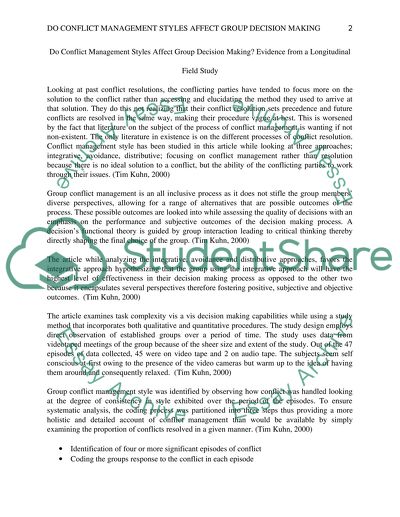Do conflicts management styles Affect group decision making Annotated Bibliography. Retrieved from https://studentshare.org/journalism-communication/1618102-do-conflicts-management-styles-affect-group-decision-making
Do Conflicts Management Styles Affect Group Decision Making Annotated Bibliography. https://studentshare.org/journalism-communication/1618102-do-conflicts-management-styles-affect-group-decision-making.


